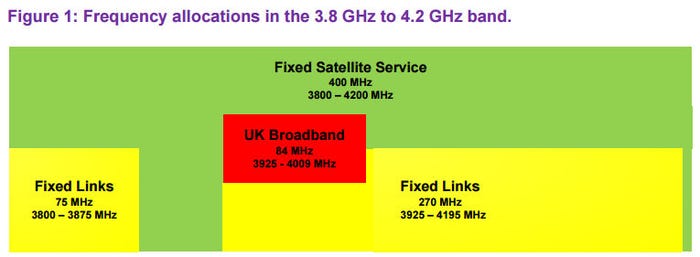Ofcom overhauls spectrum sharing framework, mulls 3.8-4.2 GHz opportunitiesOfcom overhauls spectrum sharing framework, mulls 3.8-4.2 GHz opportunities
UK telecoms regulator Ofcom has published the new framework it will use to assess spectrum sharing opportunities and opened a consultation into spectrum sharing in the 3.8-4.2 GHz band.
April 15, 2016

UK telecoms regulator Ofcom has published the new framework it will use to assess spectrum sharing opportunities and opened a consultation into spectrum sharing in the 3.8-4.2 GHz band.
The spectrum sharing document is the result of a consultation started in July 2015. As is often the case, respondents to the consultation recognised the overall importance of sharing in these spectrum-starved times, but also registered some concerns. “Many respondents thought that the framework needed to feature more prominently the importance of international coordination and harmonisation,” said the report. There were also concerns about the costs associated with new opportunities and a desire to see sharing factored into the administered incentive pricing of a band. There was also a stated desire for Ofcom to identify new sharing opportunities.
“We have identified the upper part of C-band (3.8-4.2GHz) as an initial candidate for the first of these categories,” said the report. “The band is currently used by fixed services, fixed satellite services and a national spectrum licence for Fixed Wireless Access services held by UK Broadband. We wish to understand the opportunities for and impacts of more intensive sharing in this band, with a particular interest in new innovative services.”
Hence the consultation. The diagram below shows what this band is currently being used for. “Our preliminary view is that we could develop geographic licences, which could enable the delivery of a defined quality of service, in spectrum currently not assigned on a geographic basis and separated from fixed links and satellite earth stations,” said the introduction. “We also believe at this point that it may be possible to consider facilitating opportunistic spectrum access across the band without causing undue interference to existing licences.”
Presumably the consultation will consist of the incumbents looking to defend their position or be appropriately compensated and mobile operators pleading their case. They have until 9 June 2016 to respond to the call for input, after which Ofcom will have a bit of a think before moving on to the next step.

About the Author
You May Also Like










.png?width=300&auto=webp&quality=80&disable=upscale)


_1.jpg?width=300&auto=webp&quality=80&disable=upscale)